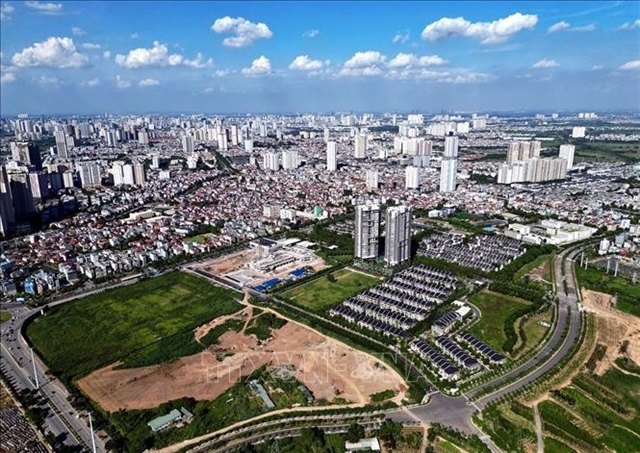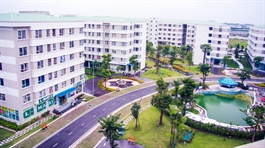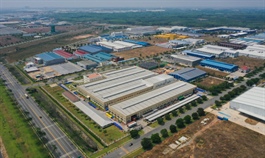Revamp for property transactions back on the cards
Revamp for property transactions back on the cards
The draft plan to revise the Law on Real Estate Business 2014 to force real estate developers to sell their products via official transaction floors has been met with wide-ranging reactions from developers and transaction floor leaders.
According to the Ministry of Construction (MoC), selling real estate products directly through developers brings about many unwanted consequences such as the appearance of illegal projects, cheating buyers, creating fake information on the market, and tax evasion.
According to Nguyen Van Dinh, chairman of the Vietnam Association for Realtors (VAR), all trading activities should be carried out via official transaction floors to develop the country’s real estate market. In that way, all of the information will be published by floors with the highest transparency and eligibility.
“Real estate is a high-value commodity. In the past, many people have been entangled in projects with legal risks, been scammed, and lost all their money and properties because of unscrupulous investors and developers. This regulation is aimed at making the market more transparent,” Dinh said.
Nguyen Anh Minh, a buyer of an apartment in District 12 of Ho Chi Minh City, said that he is confused with the different prices and incentives offered by investors on the internet.
“Buyers who want to find a house they like, with clear and transparent legality, should go through reputable real estate floors or brokers. We all understand that if we search by ourselves, we may not be able to find clean projects and unfortunately, could be entangled with illegal ones,” Minh said.
Dinh from the VAR added, “There is no guarantee for property formed in the future. If the current law allows investors to sell and advertise themselves, buyers will not have a filter to choose a legal project. When all of them are put on a professional floor, all related information will be ensured, from legal entity, product quality, commitments, and responsibility of the brokers,” Dinh added.
However, this draft regulation is not being welcomed quite so much by some developers. Nguyen Quoc Hiep, chairman of GP Invest, said that the proposals are not reasonable for some situations.
“Most investors have their own sales department. Transactions are made transparently and clearly with professional human resources, and that is why they are the most suitable force for selling their products,” Hiep said. “One floor, meanwhile, can be representing many projects from different investors at the same time, and therefore any single project will not be highlighted in the same manner,” Hiep added.
Hiep suggested the MoC should let the developers decide on suitable models for their products.
Le Hoang Chau, chairman of the Ho Chi Minh City Real Estate Association, claimed that this regulation would be a backward step and inappropriate to the realities of the market.
“This regulation could create many privileges for transaction floors, affecting the business autonomy of developers and possibly increasing house prices,” Chau said. “Meanwhile, the transaction floors do not invest in real estate projects but have the privilege to sell 80 per cent of them, which is unfair. This is not to mention cases in which the floor may be slow in transferring the money paid by buyers,” Chau emphasised.
Moreover, a transaction fee of two per cent would be included in the product’s value and this increases the house price in general, which buyers would have to bear.
The regulations being proposed was previously in the Law on Real Estate Business in 2006, which stipulated that developers can sell 20 per cent of products themselves, while the rest must be carried out via transaction floors. However, it was abolished in the Law of Real Estate Business in 2014.

























